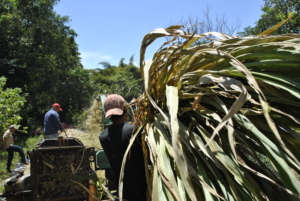Salvadoran journalist Óscar Martínez is pushing the bounds of traditional media in a project called Sala Negra that seeks to shed light on violence and instability in Central America. His project is an offshoot of digital San Salvador-based media outlet El Faro (elfaro.net,) which claims to be the first exclusively online newspaper in Latin America.
Sala Negra has quickly become the center of investigative crime reporting in Central America. Martínez, the project’s director, says that the reality of Latin America is so complex that in order to get to the bottom of what is happening there, every rule of the traditional media must be broken.
The digital venture, which began in 2010, digs up information on violent events in the region in the hopes of reaching a more thorough understanding of why 2 million Central Americans leave their homes for the United States every year, crossing through Mexico’s treacherous territory and enduring countless other difficulties.
Sala Negra is staffed by five reporters, three photographers and one documentarian. Martínez jokes that the fast food industry would never approve of the project’s pace, as each member of the team works on only five in-depth reports each year. The site is driven by quality rather than quantity.
In 2013, Sala Negra released a book called “Crónicas Negras.” The publication is a compilation of 18 of the best investigative pieces from Sala Negra’s first year. Topics revolve around the gang activity, deportations and civil wars that have caused so much turmoil in modern-day Central America. It thoroughly examines the weak states and strong organized crime networks that cause havoc in the most violent countries in the region – El Salvador, Nicaragua, Honduras and Guatemala.
The strategy of Sala Negra is to move away from fast, sensational news and toward in-depth, investigative reporting. Martínez articulates that this kind of reporting is desperately needed in the region as profound, investigative journalism is extremely scarce, especially in Central America.
In the introduction to “Crónicas Negras,” Sala Negra admits that there are no reliable numbers for those killed in the everyday war being fought in Central America. There are no formal borders, nor does the war have a name. Yet, the text laments, it is the worst war because the people who fight in it have forgotten the value of life for being so in love with death.
Journalists like Martínez and his colleagues at Sala Negra embody honorable, responsible journalism. Their mission is to uncover the truth behind violence and migrant flows in and out of Central America in order to know how to move forward and bring a bit of justice to such a tumultuous area.
— Kayla Strickland
Sources: Sala Negra, El Faro
Photo: Starmedia




